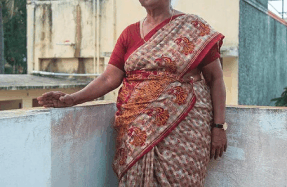JATT LIKE THAT


SOMETIME AFTER THE 2005 RELEASE of his third Punjabi pop album, Smile, a young Diljit Dosanjh, only a musician then, gave an interview to Channel Punjabi, dressed in maroon from head to toe, wearing a turban, shirt and bell-bottoms.
The interviewer asked him about the song “Aa Gaye Paggan Pochvian Waale”— The turban lovers are here. “In these times, most people believe that wearing a turban does not look glamorous,” he said. “But you remained confident in how you look. Tell us about how you have this confidence.”
“Most people seem to believe,” Dosanjh responded in Punjabi, “that if a sardar boy ties a turban, he cannot be called good-looking or glamorous. I have nothing against those who have cut their hair. To each his own. But I have no inferiority complex about the turban, as if we are lacking something. Hum kisi se kam nahin”— we are no less than anyone else.
Over the next decade, Dosanjh not only released several hit albums, but also began acting in Punjabi films, becoming one of the biggest celebrities in the region. In 2016, as his first Bollywood film, Udta Punjab, was about to come out, Dosanjh appeared in another interview with the famous film critic Anupama Chopra. While Chopra asked questions in a mix of Hindi and English, Dosanjh, who does not seem uncomfortable in Hindi, often chose to answer in Punjabi. He repeated a version of what he had said in 2005. “People used to tell me, ‘Since you wear a turban, there’s no way you can work in Bollywood films. There will never be a role for you.’ So I also believed that Bollywood would never have a role for me … but anything can happen if god wants it to happen.”
“I’m still being asked, ‘Don’t you think you will get limited roles because of the turban?’ Well, I only want to do limited roles then,” Dosanjh said with a grin. “I don’t want to do too many roles anyway.”

Dosanjh’s pride in the turban and Sikh culture struck a chord with the community. Several Punjabi film protagonists began appearing on screen wearing turbans. An article in the British daily The Guardian noted the increase in turban-tying services in the United Kingdom, and attributed the trend to “younger members of the Sikh community displaying increasing pride in their roots and the rise of Bollywood stars such as Diljit Dosanjh bringing turbans into the spotlight.” A Facebook group called “Paggan Pochvyian Wale,” the title of Dosanjh’s hit song, has about thirty thousand members, and YouTube is flooded with videos with titles along the lines of “How to tie the turban like Diljit Dosanjh.” Dosanjh has emerged as the first sardar to have carved a space for himself in films on the national stage, without having to give up his Sikh identity.
Dosanjh’s rise has paralleled the growth of the genre of Punjabi comedy. The 2012 film , starring Dosanjh and Neeru Bajwa, quickly became the highest-grossing Punjabi film upto that time, and, still in theatres, has already made over ₹ 50 crore worldwide and has broken several previous records.
You’re reading a preview, subscribe to read more.
Start your free 30 days



